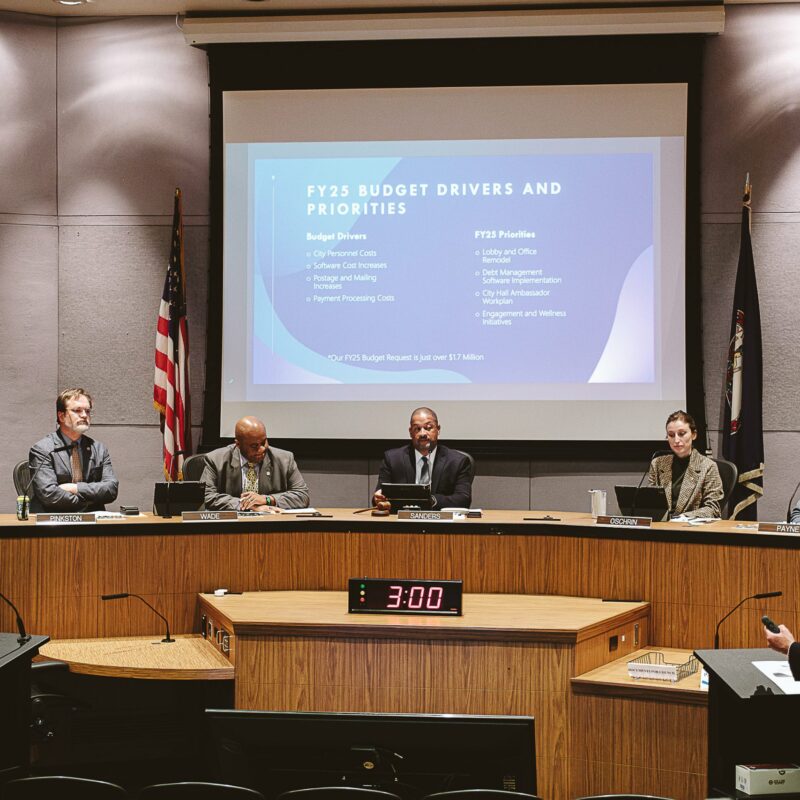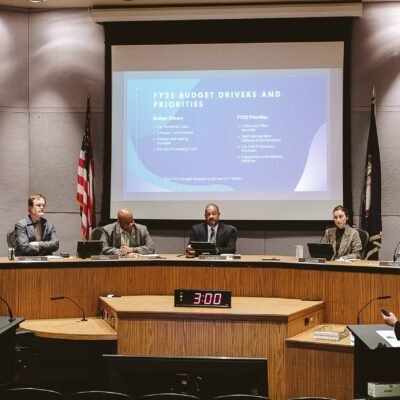If the only stupid question is the one not asked, then Danny Schmidt, a Charlottesville expatriate and a founding father of the local folk scene, is thumbtack sharp, a songwriter with the curviest question marks.
|
Former local Danny Schmidt trots out his finest tunes for the esteemed Red House Records label on Instead the Forest Rose to Sing. |
Each of Schmidt’s albums—from 1999’s Live at the Prism Coffeehouse to last year’s odd-song-out compilation, Little Grey Sheep—delivers a batch of narratives that show both sides of every coin and temper each dark cloud with its silver silhouette. If there are answers to be found among them, then like a “Jeopardy” contestant, Schmidt delivers his answers in the form of more questions.
Wisely, Schmidt saved his most clever conundrums for when the big league called him up. On March 10, Red House Records—home to the likes of Ramblin’ Jack Elliott and Loudon Wainwright III—released Schmidt’s latest, Instead the Forest Rose to Sing. Save for a song or two, locals that heard Schmidt perform at Gravity Lounge or Rapunzel’s during the last two years will recognize these tracks.
What they may not recognize, however, are the arrangements. Teamed with a sizable supporting cast including his girlfriend, singer Carrie Elkin, and Texas-based engineer/multi-instrumentalist Mark Hallman, Schmidt goes for broke on every song. The best among them provide answers; the others, fittingly, provoke a few questions.
The opening combo, “Better Off Broke” and “Swing Me Down,” play to Schmidt’s strengths. Rather than recreate the woozy metronome rhythms of Schmidt’s solo gigs, “Broke” revises the feel with a shrug-and-shuffle drum beat. “Swing,” meanwhile, stays true to the simple drive of Schmidt’s strum and brings in the dark-eyed prince’s longtime vocal foil, Joia Wood, to help him “swing the girl who cleans you up, then swing the girl that broke ya.”
No matter who Schmidt is swinging, the songs here fare best when Schmidt leads. “Grampa Built Bridges” and “Southland Street,” the next two songs, keep the flourishes of Schmidt’s band subtle—a cello for the mourned memories of the former, an accordion for the sly resignation of the latter. Both instruments pair with Kevin Flatt’s trumpet on “Firestorm,” a rare ballad of rage from Schmidt, who spots “palms demanding grease,” then eerily whispers: “Was a time I would have nailed those palms to trees.”
Some questions don’t resolve themselves so easily. Elkin’s voice is neither match nor mate for Schmidt’s bristling cries in “The Serpentine Cycle of Money”; Joia Wood, who sang the song with Schmidt during a few local sets, made a more sinister partner.
And in “Two-Timing Bank Robber’s Lament”—one of Schmidt’s oldest story songs, and damned near perfect as a solo tune—the black humor of the harmonica fills and chain gang backing vocals suit the song’s whimsy, but don’t quite match the bitterness or melancholy of the track. Yet on a third or fourth listen, I found myself singing with the backing vocalists rather than Schmidt. In the end, I’d rather croon along with the man that keeps asking questions than a man that always has the answers.






